Simon Marks penned a fascinating article and work of journalism about one of the world’s most prominent anti sex-trafficking activists. It’s entitled, Somaly Mam: The Holy Saint (and Sinner) of Sex Trafficking. The article exposes some of the lies, half-truths, and inconsistencies told by Somaly Mam about her contextual history as a victim of sex-trafficking. The fabrications that she told gave rise to her prominence as a courageous face and voice of women and girls who were sold into sexual slavery. The fabrications that she told about herself and the fabrications that she helped others concoct and tell were also her downfall. She resigned from the Somaly Mam Foundation only a few days after the Marks article was published.
A woman was caught lying about her victimhood. This woman used her false victimhood narrative to raise millions of dollars for her foundation. She became a sort of celebrity, appearing on Oprah and making other television appearances. She visited the White House, gave speeches, and even met with the pope. She penned a book, detailing her made-up suffering. In short, this woman glamorized a false narrative of victimhood for personal gain. She is a liar.
Chemaly Tripe
According to the prominent feminist, Soraya Chemaly, we live in a misogynistic culture where we teach our kids that women are liars. According to Chemaly, we are taught to believe that women are liars. Chemaly doesn’t blame lying women for perpetuating and reinforcing such beliefs—that women are liars. She doesn’t advise women to simply stop lying. Instead, Chemaly blames this distrust of women on misogynistic cultural attitudes about women, failing to articulate that these cultural attitudes may, in fact, be rooted in the reality of lived-experience—that women do lie—just like Somaly Mam and all the other paid liars who glamorize their false narratives of victimhood.
In her article, Chemaly tries to be ironic by noting that even though our culture has this supposedly misogynistic distrust of women, our culture tends to trust women to be mothers—“the largest pool of undervalued economically crucial labor.” The real irony here is that Chemaly, by painting mothers-as-victims of economic exploitation, perpetuates the very lying that reinforces these so-called misogynistic cultural attitudes—the very same grievance that she claims to be fighting against.
Just because mothers or mothering persons are not on a payroll for being motherly doesn’t mean that we, as a culture, undervalue them or that we exploit them economically. Just because babysitters don’t get paid as much as civil engineers doesn’t mean that we are biased against mothering work. In fact, I would go so far as to say that if we were to make mothering into a commodity, we’d actually be devaluing it—making it a sort of capitalist trinket to be bought and sold in the marketplace.
The fact that mothering labor has largely remained free from capitalist market exploitation is evidence of the fact that we actually do value mothers, mothering persons, and their labors. However, this doesn’t stop Chemaly from perpetuating the lies and false narrative of mothers-as-victim. Chemaly knows that we, as a culture, have tremendous respect and care for our mothers. That is why she perpetuates the lie that we undervalue and don’t care about mothers or mothering persons.
We all, as a culture, care about our mothers. That is what makes her false narrative so powerful. It is precisely because we care so much about our mothers that we listen to anybody (including Chemaly) who says that mothers may be victims of exploitation. It is precisely because we care so much about our mothers that victimhood narratives about them are so easily glamorized by Chemaly.
This is why Somaly Mam was so successful at raising funds. It’s precisely because we care so much about women and girls that Mam’s false narrative was so glamorized and powerful. It moved the powerful, the elite, and the wealthy to donate millions of dollars to her cause—to her foundation, ostensibly to help victims of sex-trafficking.
If we really lived in the horribly misogynistic culture, as Chemaly would have us believe, then Mam’s glamourized and powerful story of victimhood wouldn’t be glamorous and neither would it be powerful. It would be a story that wouldn’t evoke much emotion at all—perhaps only the absence of emotion, a callous indifference.
This reality is something that Chemaly will likely never articulate in any of her articles. Her article detailing how women are victims of misogynistic cultural attitudes depends on the lie-by-omission of this reality—that, as a culture, we do care about women, mothers, and girls. Without this lie-by-omission, her work, career, and writing wouldn’t have any traction or weight. Nobody would pay any attention to her or her articles. Nobody would read her. Nobody would pay her. And nobody would care.
It is precisely because we, as a culture, do care about women that we pay women like Mam and Chemaly to give and be a sensationalist voice to women victims—even if that voice is a lying one. It is precisely because we care about women that we are willing to blame these so-called misogynistic cultural attitudes for painting women-as-liars, rather than blame the liars who lie. Chemaly would have us believe that these so-called misogynistic cultural attitudes precede the actual facticity of our lived-experiences with particular women—our experiences and interactions with liars.
Chemaly writes that “The pervasive message that women are untrustworthy liars is atomized in our culture. There is no one source or manifestation. It fills every nook and cranny of our lives. I find it sad and disturbing that children learn so quickly and normatively to distrust women. Any commitment to parity means challenging the stories we tell them. It means critically assessing the comforting institutions we support out of nostalgia, habit, and tradition. It means walking out of places of worship, not buying certain movie tickets, closing some books, refusing to pay for some music, and politely disagreeing with friends and family at the dinner table. It’s not easy. But, really, what’s the alternative?”
What’s the alternative? For starters, how about Chemaly, Mam, and other paid liars stop lying? Don’t lie. Somaly Mam can stop spreading lies about victims of sex-trafficking, undermining the real suffering of real victims. Chemaly can stop spreading lies about mothers-as-victims. She can stop spreading invective and misandric lies about men—their supposed culturally ingrained hatred for women as born liars. She can, instead of blaming cultural misogyny, tell women to not lie.
How about we teach women to not be liars because lying makes a person untrustworthy? Cultural misogyny doesn’t make a person untrustworthy. Lying makes a person untrustworthy. That is the “one source or manifestation” that Chemaly fails to address…perhaps because she is a paid liar? Not once, in her whole screed, does she address the fact that women lie and neither does she hold women in-general or any particular woman accountable for lying.
Instead, she blames The Patriarchy™–philosophy, institutions, traditions, religions, movies, books, music, and interactions with friends, family, and neighbors. Rather than hold folks accountable for telling lies, Chemaly suggest that we should simply label anybody who doesn’t trust the word of a liar as a misogynist.
Anybody who doesn’t believe a woman who claims to have been raped—that person is a misogynist, according to Chemaly. Never mind the fact that there may have been no evidence to back up the allegation, if you don’t believe her, then you are a misogynist because you aren’t gullible enough to believe. This is precisely the twisted spin that we should expect from a paid liar.
Here is a Gallup poll from 2013 regarding honesty in various professions. Notice that lobbyists, members of congress, car salespeople, state officeholders, and advertising practitioners round out the bottom five least trustworthy people. There are good reasons to believe these people to be untrustworthy. They are paid liars, just like Somaly Mam and just like Soraya Chemaly. Their livelihoods depend on how well they can tell lies.
Marcotte Tripe
Take Amanda Marcotte’s perspective on the Somaly Mam scandal as a prime example of how to spin lies. In her article entitled Somaly Mam And the Cult of Glamourized Victimhood, Marcotte, similar to Chemaly, blames misogyny and The Patriarchy™ for the lies told by Mam.
According to Marcotte, if we didn’t live in such patriarchal and misogynistic culture, Mam wouldn’t have had to tell such lies about victims of sex-trafficking. If only our culture valued women, girls, and mothers, then Mam wouldn’t have needed to fabricate such outrageous lies about the suffering of women and girls. If only women and girls weren’t devalued so much, then the elite, the powerful, and the wealthy would have been more willing to donate to her cause—funding her foundation, and to other feminist causes. Yes, if only the elite, the powerful, and the wealthy were more gullible, then Marcotte and other liars wouldn’t have to work so hard at spinning lies to get paid.
According to Marcotte, Mam’s foundation and work (as well as similar work by others) is “feel-good feminism.” She says this kind of feminism sets the moral bar too low and that it plays on the desire to rescue poor damsels who are trying to overcome their tragic conditions—a morally easy position. She writes this, all the while peddling the lie that we, as a culture, don’t care about women, girls, and mothers.
She goes on to write that “It’s hard not to wonder if the bar is being set awfully low here. It’s easy to take a stand against underage sex slavery. It’s harder to take a stand against the widespread objectification and marginalization of women in the entertainment community, forces that help shape a culture where men feel entitled to have sex and act indifferently to the humanity of women…What women around the world need is not just people who stand up for them when it’s easy, when the villains are predatory pimps and faceless rapists. Women around the world need people to stand up for them when it’s hard.”
Notice how Marcotte spins the lies. Marcotte, spreads the invective lie that men feel entitled to sex with women because The Patriarchy™ and misogyny are so pervasive in the entertainment industry. As with Mam and Chemaly, Marcotte knows that we, as a culture, do care about women and that is precisely why she spins yet another victimhood narrative about women being objectified, marginalized, and dehumanized by powerful and wealthy men, forces who control the entertainment industry.
In order for Marcotte and other paid liars to procure more funding from these elite, powerful, and wealthy men, she spins the lie that these men are moral cowards, afraid to “stand up…when it’s hard.” This is simply another, but more subtle, exploitation of men who demonstrate care for women through their desire to rescue poor damsels—the very white-knighting and benevolent sexism that she referred to as “feel-good feminism.”
Marcotte goes on to describe the Mam scandal not as an “anomaly, so much as the inevitable result of a culture that puts more emphasis on heroic tales of triumph than on the bigger picture question of health and inequality. Mam made up tales of woe because she knew it would attract attention and fundraisers that a more sober assessment of realities would not. That she was right should give us all cause to wonder about reorganizing our social justice priorities.”
Yes, according to Marcotte, paid liars shouldn’t have to concoct outrageously fabricated tales of womanly suffering and adversity to procure funding for their causes. Paid liars shouldn’t have to work so hard. Fundraising for paid liars should be as easy as spreading invective lies about how men feel entitled to women’s bodies. Anything more is simply proof of misogyny and patriarchal objectification, marginalization, and dehumanization of women.
White House Counsel for Boys and Men
To put into perspective the effectiveness of these paid liars and how much our culture actually does care about the well-being of women and girls, it’s important to note that the Somaly Mam Foundation, since its formation in 2007, raised millions of dollars to touch “the lives of over 100,000 women and girls…” Here is a copy of their 990IRS tax form for 2011. What makes these charitable contributions to the foundation so remarkable is the fact that there were estimated to be 1,809 sex workers in need of rescue for all of Cambodia (217 in Mam’s Phnom Phen province). (See page 32 of this extensive Thomas Steinfatt study.)
Millions of dollars were donated and spent to rescue roughly 1,800 Cambodian girls. To put into perspective how much our culture actually doesn’t care about men and boys, contrast that fact with the reality that we can barely manage to scrape together 2,500 signatures petitioning the White House to create a counsel on men and boys, something that was created back in 2009 for women and girls. However, we can get nearly 300,000 signatures petitioning the White House to have Justin Bieber deported…for being an annoying boy.
At this point in time, men would be lucky to get some rope, a wobbly stool, and a hook for making their own noose to hang themselves. All the while, men face constant cultural opposition from morally retarded scumbags like Chemaly and Marcotte, claiming that The Patriarchy™ (and by extension, men) are a privileged class—a class so privileged that we can’t get shelters, White House counsels, or proper mental health treatment.
The scope of the problems facing men and boys is not simply a matter of whether or not there are fundraisers. There is the difficult problem of the empathy gap that biases against men and boys. There is the “Women are Wonderful Effect,” which is contrary to and often contradictory with the blatant lies and spin that Chemaly and others would have us believe about misogynistic cultural attitudes of bias against women. There is the women’s “automatic in-group bias,” which is remarkably stronger for women than men.
We could hold fundraisers 24-7-365, but if funding isn’t raised because folks don’t care, then there’s no point in holding fundraisers that don’t raise funds. Even if we were to procure some funds through private charitable donations, most funding for domestic violence shelters stem from government aid (primarily through the Office on Violence Against Women), not private fundraising donations.
Chemaly posed the question. “What’s the alternative?” The alternative is the demonstration of care for men and boys—something that is sorely absent from our culture. One of the most radical socio-cultural changes that could happen would be the cultural application of care for men and boys. If we want to change society, if we want to end violence, gross economic disparity and stratification, racism, colonialism, wars, the inhumanity of our prison systems, then we will need to radically shift and change our cultural attitudes and biases against men by demonstrating real care for them.
The first thing we can do as a demonstration of our care—sign Warren Farrell’s petition to create a White House counsel on men and boys. If we care at all about the well-being of men and boys, we can demonstrate it by taking 2 minutes of our day to sign the petition. It’s a simple and easy start.
For a more in-depth consideration of this White House counsel on men and boys, please read about Warren Farrell’s efforts and attempts to create it.





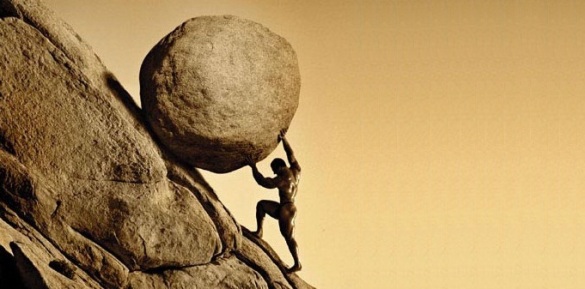
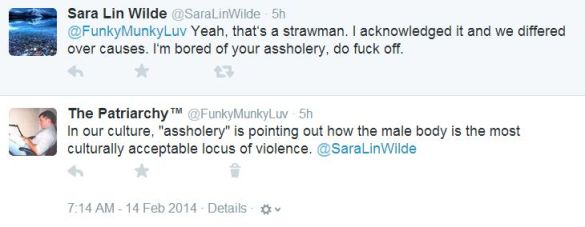
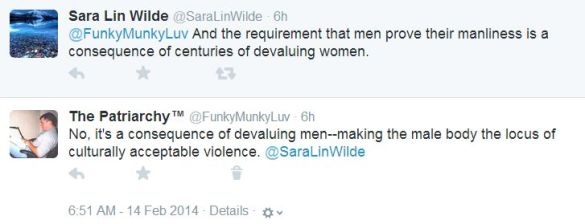
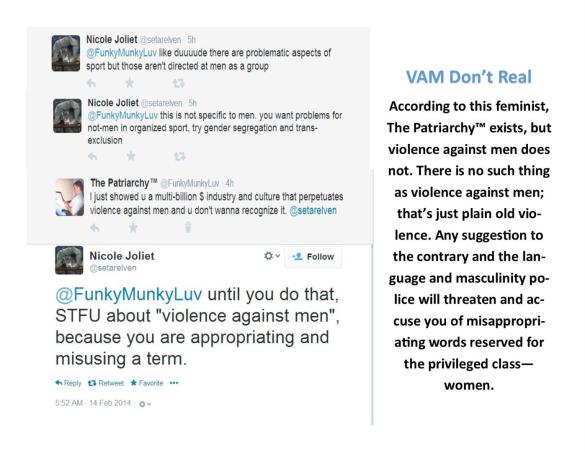
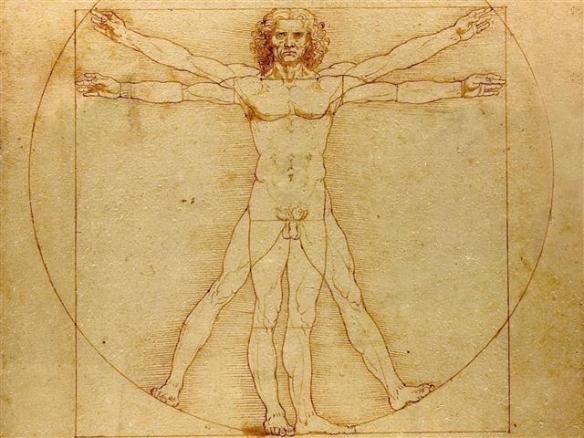
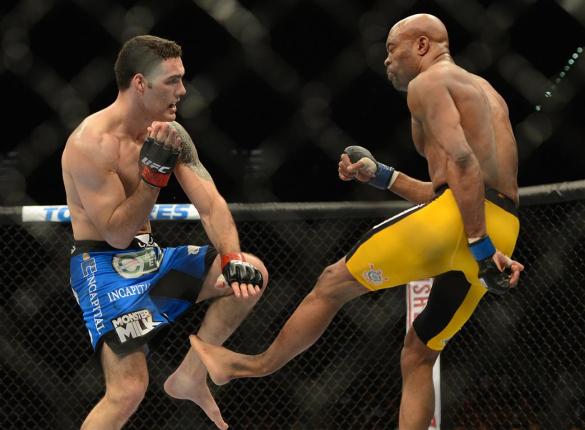
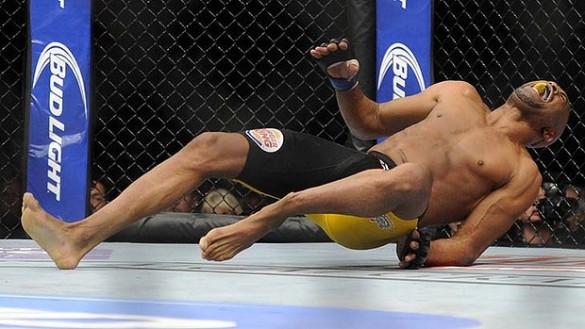













You must be logged in to post a comment.